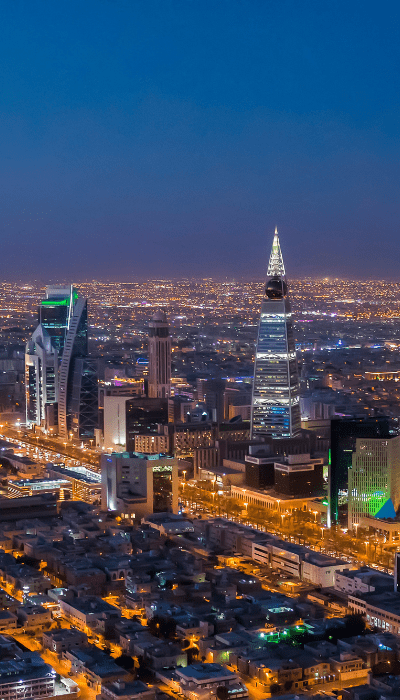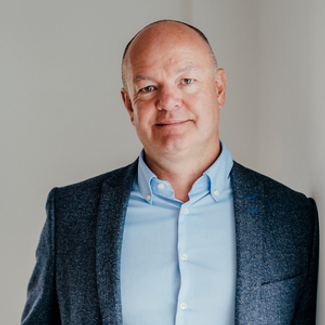Located in the Middle East and known as the Kingdom of Saudi Arabia, the country has a population of 35.8 million people. It is popular with expatriates for the attractive lifestyle, high standard of living, wealthy economy, and prosperous job opportunities.
We are currently recruiting for a fantastic opportunity in Saudi Arabia, so wanted to share why a move to Saudi Arabia could be a great step in your pilot career, along with everything you need to know before making the move.
Key Takeaways
Attractive lifestyle and strong earning potential: Saudi Arabia offers a high standard of living with a comparatively low cost of living, making it appealing for pilots looking to maximise their income.
Practical considerations matter: Education, accommodation, cultural expectations, and climate vary from Western norms, so research and preparation are essential before relocating.
A central hub for travel and career growth: With strong expatriate communities, modern compounds, and easy access to wider Middle Eastern destinations, Saudi Arabia can offer both career development and a diverse lifestyle experience.
1. Cost of Living
The cost of living is one of the main reasons why expatriates relocating to the Middle East choose to live in Saudi Arabia. In general, the cost of living remains low and very reasonable in comparison to the higher salaries and Middle East ex-pat havens on offer. This means you can often get more for your money when it comes to expenses such as housing, groceries, bills, eating out and transport.
2. Education
State education is free from primary school to college but international/expatriate children are prohibited to attend Saudi Arabia's state schools. Instead, international children are required to enrol in either private or international education.
International schools typically follow a western curriculum and lessons are taught in English. Many great international schools are available and offer an extremely high standard of education, many are on the compounds where a high percentage of expatriate families live.
To find the best school for your children we would recommend doing a lot of research and taking a look at the expatriate forums available online. There is a lot of accessible advice but it’s about finding what is right for you and your family.
3. Culture and Religion
Saudi Arabia’s culture descends from Islamic beliefs and traditions, with religion having a heavy influence on the way of life. Islam is the only religion that can be publicly practised, and other religions must be practised in private. For example, if you are a westerner and want to bring a bible into Saudi Arabia it can only be for personal use; sharing it with someone else is considered an illegal offence.
All Saudi laws are Shari’ah and come with serious penalties that are not to be taken lightly. Some of these laws can be a culture shock for many people relocating from western cultures but if you are prepared to adjust and be respectful of the cultural differences the quality of life in Saudi can be fantastic.
Saudi Arabia is developing greatly and over the years some laws have been relaxed, which are more accommodating to international residents. With a mix of entrenched and modern traditions, Saudi Arabia can be an interesting place to live.
Religious traditions include Hajj and Ramadan, which mark two of the most important months in Islam. During Ramadan, Muslims fast from sunrise to sunset and end their final fast with the well-known religious celebration of Eid. Eid is a great time to visit Saudi Arabia because everyone comes together to celebrate this important religious festival.
4. Food
Saudi food is traditional Arabic, but the main delicacy is a dish called Kabsa – a mix of rice, meat, vegetables, and spices. Other traditional foods include dates, falafel, pitta, umm Ali, tames and a lot of fruit. Arabic coffee and sweet goods are traditionally used to welcome guests and family to the home as a sign of hospitality - so be sure to have some ready for when your guests visit.
Some food has become westernised over the last few years and you will be able to purchase most of the food you are used to in all major supermarkets, however, it is illegal to consume, buy or sell pork products and alcohol.
5. Climate
The climate in Saudi Arabia is dry for most of the year with temperatures reaching as high as 54 degrees in the summer months. At night temperatures will drop considerably and during the winter you can expect to experience a much cooler climate.
The climate also varies depending on location with the western coast experiencing a monsoon season that runs between October and March. In general, the rest of the country will remain dry with occasional rainfall.
6. Accommodation
For expatriates, it is more common to rent a property as buying is a financially long-term commitment. Unless you know you will be living there for a long period and have a work permit or visa secured, it can be a risk. Only recently have non-residents of Saudi Arabia been able to purchase property, so it is a very important decision to make. We would suggest renting before committing to buying.
With any relocation when it comes to accommodation you should try before you buy. Finding a property online can be tough because you cannot get a real perception of what you are looking for. When you first relocate abroad it is often sensible to find a short-term lease so you can shop around, get to know your preferred neighbourhoods, and find a property suited to you. The main expatriate areas are Riyadh and Dhahran, which is useful to know when searching for your first property.
Most expatriate families choose to live in gated communities (compounds) that are equipped with a variety of facilities. Living in a compound is like living in a resort and you can expect to find cafes, restaurants, swimming pools, schools, shopping centres, groceries stores, and even tennis courts and golf courses. If you want everything in one place, a compound will be the most suitable option for you. GOOSE is currently recruiting for a PC21 Pilot Instructor role, which comes with the fantastic benefit of a villa on a compound.
For families, couples or individuals that prefer to be closer to the city centres there are also apartments and freestanding villas located very centrally.
To find the best option for you and your family we always recommend partnering with a real estate agent.
Bear in mind that your rental or buying contracts will be in Arabic, so it is paramount to get these checked by a lawyer, solicitor, or reputable translator. You do not want to get caught out by any unplanned fees.
7. Travel
Being based in Saudi means you have a gateway to the Middle East. With neighbouring countries like the UAE (Dubai and Abu-Dhabi being favourable destinations), Egypt, Jordan, Israel, and Oman the travel options can be rewarding. Of course, there are some countries close by that are not safe for a holiday but there are many appealing options.
Each Middle Eastern country has its unique traditions and lifestyle, so this can be a great way to experience Middle Eastern life outside of Saudi Arabia.
8. Language
Arabic is the main language of Saudi Arabia and it is largely spoken by national residents. Expatriate and international communities will speak English and you will have no problem finding your way around when out and about.
9. Checklist
There are several crucial things you will need to have in order before moving to Saudi Arabia:
Visa documents and work permit: After receiving a formal letter of employment, you must apply for the correct visa and work permit for both yourself and your family. This is a legal requirement that must be confirmed before living and working in Saudi Arabia. Most employers will support their employees through this process.
Health Insurance: You must have medical/health insurance before moving. All international residents are required to take out private cover and will not be covered by the state system.
Opening a Saudi bank account – You will need to set up a new bank account with a Saudi Company. This account will be used to receive your salary from your employer and pay any bills/direct debits to companies you use in the Middle East.
GOOSE loves to talk to Aviation Professionals from across the world
Follow GOOSE Recruitment on LinkedIn, Facebook and Twitter for the very latest aviation news, updates, exclusive insights and regular hot jobs.






